Non-Crazy Questions (IV)
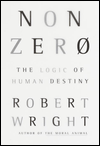 In Non-Crazy Questions (III), I pointed out that Robert Wright's book Nonzero: The Logic of Human Destiny is actually in the center of the spectrum, with respect to the ongoing debate over Darwin's theory of evolution.
In Non-Crazy Questions (III), I pointed out that Robert Wright's book Nonzero: The Logic of Human Destiny is actually in the center of the spectrum, with respect to the ongoing debate over Darwin's theory of evolution.On the left are the true Darwinists, spoken for by Richard Dawkins and the late Stephen Jay Gould, among others. They tend not to believe in God at all, or at least assert that no divine initiative need be invoked to explain the origin of species on earth. They also believe that the trajectory of evolutionary history is aimless and our appearance on the scene wholly accidental. To them, natural selection is neutral with regard to producing intelligent species whose members turn right around and say they possess supernatural souls.
On the right are the Bible-believing six-day creationists, upholders of a literal interpretation of the Book of Genesis, who also assert, against all scientific evidence, that the Earth is but a few thousand years old. They have been joined of late by the proponents of Intelligent Design. IDers accept that earlier, simpler species evolved into more complex ones, but only with God's repeated help along the way. For they say that natural selection alone, coupled with chance mutations, can't by itself account for the high levels of complex functionality that life on Earth has achieved. IDers can thus be thought of as creationists of a slightly different stripe.
Let me call the middle ground in the debate that of "emergentism." Where pure Darwinists and creationists both assume God's involvement in creating this planet's life forms (if any) had to be a matter of commanding innovations from on high supernaturally — the difference being that Darwinists deny that that ever happened — emergentists say the "dice were loaded" so as to allow Mother Nature to cooperate with what a religious believer would say was God's beneficent will and intent for the creation of ... us.
Not that all emergentists are religious believers, by any means. Stuart Kauffman, in At Home in the Universe, propounds "self-organization," which he says is natural selection's "handmaiden." He says self-organization has produced more and more "order for free" over millions and billions of years and has given evolution its near-inevitable trajectory toward "we the expected." But his theory is entirely non-mystical; nowhere does Kauffman say there's a God behind it all. Kauffman is thus a non-theistic emergentist.
Wright's "non-zero-sumness" — a notion from game theory which he says explains why cooperation trumps competition in the working out of survival of the fittest — is kissing cousin to Kauffman's self-organization. The two may even be different ways of expressing the same truth: nature's dice are loaded in favor of life, increased complexity, and consciousness. That last phrase, by the way, is the take of Arthur Peacocke, a theistic emergentist, in books such as Paths from Science Towards God. But Wright, for his part, asserts that his non-zero-sumness thesis by itself does not vouchsafe that there is a God. Only when the intelligence that non-zero-sumness eventually yields is coupled with consciousness of the "epiphenomenal" type he says we humans have can God's existence (maybe) be inferred. Again, that's because Wright says natural selection is blind to consciousness ... so where did consciousness come from?
The question is, how should such things be taught to our children in school?
IDers say, "Teach the controversy." I agree with that. But they want to teach Intelligent Design in science class, right alongside Darwinism. I don't agree with that. I think ID, along with any theologically oriented aspects of pure Darwinism and of the position in the center that I'm calling emergentism, out to be taught in a philosophy class.
I'd call this class Philosophy of Life Sciences, or POLS. POLS is where the assumptions of pure Darwinists about the aimless, directionless, pointless nature of evolutionary history ought to be introduced. It is where the counterclaims of a Robert Wright that evolution is actually directional and teleological — moving towards increased complexity, intelligence, and the possibility of consciousness — should be discussed.
In addition to being the proper place to discuss such philosophical approaches to directionality, teleology, and consciousness, POLS class is the natural home of many outright theistic or theological debates concerning evolution theory as well. Do Arthur Peacocke, Denis Edwards, and other believers (see Non-Crazy Questions (III)) claim to be able to reconcile Darwinism with their versions of theology? Their arguments, in addition to being theological, are at core open-ended and hence philosophical. They represent, at best, just one viable school of thought. It happens to be the school which I personally favor, but that this school is the correct one is far from a slam dunk. Inquiring minds differ, and empirical investigation can't settle the matter once and for all ... which is why this is philosophy, not science.
So, too, is Intelligent Design. It's a philosophical argument (never mind its mathematical overtones, when placed in the hands of one William Dembski) masquerading as a scientific theory. Like all philosophical arguments, it must be judged by different criteria than those of science. It may or may not be a good argument — I happen to think it's flawed — but POLS students can and should make up their own minds about ID.
The question I can't answer is whether POLS should be taught in high schools, or only in college.
It seems to me that POLs is most naturally a college-level discipline ... as is any aspect of philosophy, traditionally. But not everyone goes to college. And the topic of evolution theory is such an important, hot-button concern in our society today, I'd hate to see any high-school graduate ill-prepared to deal with it.
Yet if POLS is taught at the high-school level — in public high schools, mind you — how can its religious aspects pass constitutional muster? True, it's intent would not be to advance religion, but it would nonetheless present to students certain worldviews that do extol religion. Are high schoolers able to handle such ideas with the tongs of critical, suspended-judgment thinking? Can they distinguish between "received wisdom" and what various people only claim to be true? Or will they too easily be swayed by certain worldviews simply because they happen to match their own ingrained presuppositions? In short, are they ready to do philosophy? I can't really answer questions like that.
Now that I've taken a pass on that important question, I'd like to move on to discuss some intriguing aspects of what I'm calling the philosophy of the life sciences. More on that in the next installment.






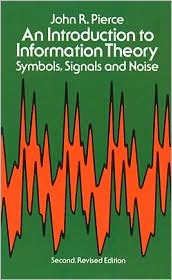

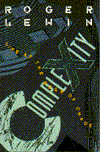


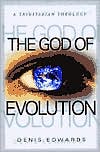

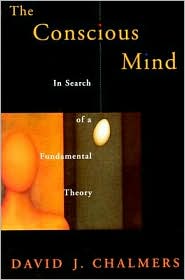
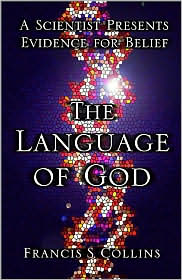


0 Comments:
Post a Comment
<< Home